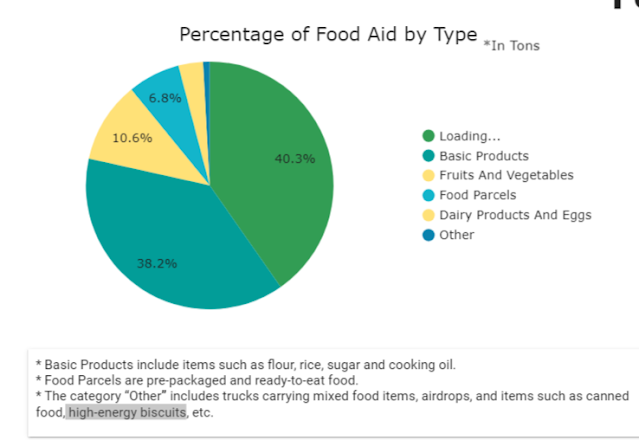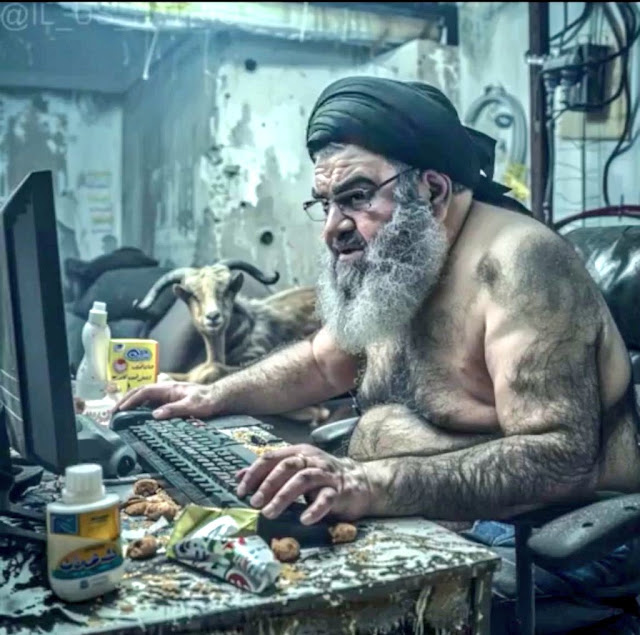Melanie Phillips: An explosive moment of clarification
The Iranian war of extermination against Israel continues to be a clarifying moment for the supposedly civilised world. As this crisis continues, it is remorselessly spotlighting those who stand against such evil and those who are shamefully siding with it.Richard Kemp: Israel is winning its war against Hezbollah. We should celebrate.
Israel’s astounding feat this week in killing or disabling thousands of senior Hezbollah operatives by causing their pagers and walkie-talkie radios to explode has sent its western enemies into a frenzy. Anti-Israel activists and the media have been falling over each other to claim that the attack indiscriminately endangered and killed innocent civilians and amounted to a reckless escalation of the war.
In fact, never in the history of warfare has there been a more precisely targeted attack against enemy combatants. The explosive devices had only been distributed to senior Hezbollah operatives. The small amount of explosive inside was designed to hurt only the carriers.
The number of civilian casualties was accordingly extremely small. All such casualties are regrettable. But those accusing Israel of recklessly endangering civilians and escalating the war fail to acknowledge the difference between deliberately aiming to kill civilians and inadvertently causing civilian casualties in a just war of defence.
They fail to register the dozens of Hezbollah missiles and rockets that Hezbollah is firing every day to kill Israelis. They fail to refer to the 12 Druze children and young people killed by such an attack in July on Majdal Shams. They fail to note that Hezbollah has been increasingly widening its target range ever more deeply into Israel.
Escalation, it seems, is a one-way street. It never applies to attacks on Israel, only to Israel when it defends itself.
The Biden administration continues to play a double game. Ever since the October 7 pogrom, it has pressured Israel not to take the steps needed to defeat Hamas, stop Hezbollah and neutralise Iran. That pressure has become frenzied in recent days as Israel has signalled it may have no alternative but to clear Hezbollah out of southern Lebanon altogether.
But at least the United States voted against the appalling resolution passed by the UN General Assembly on Wednesday — by 124-14 with 43 abstentions — demanding that Israel should end “its unlawful presence in the Occupied Palestinian Territory” within 12 months.
The text of the resolution was based on the advisory opinion by the International Court of Justice in July that Israel’s “occupation of Palestinian territory” was illegal. But the ICJ is a kangaroo court, relying for its “evidence” entirely on falsehoods propagated by those who want to see the Jewish state destroyed.
That includes the United Nations itself, which is institutionally programmed for Israel’s destruction by singling it out for a campaign of lies, bullying, harassment, discrimination and demonisation that it deploys against no other country in the world.
This world body is morally bankrupt. So, too, is the British government, which couldn’t bring itself to vote against a resolution demanding Israel’s withdrawal to the 1948 ceasefire lines — dubbed by Israeli statesman Abba Eban “Auschwitz borders” because their indefensibility would guarantee Israel’s extermination — but instead abstained.
In the past 11 months they have killed an estimated 20,000 terrorists against 340 IDF deaths. On probably the most complex battlefield seen in modern warfare, they have also achieved great success in minimising civilian casualties and maximising aid deliveries.Seth Frantzman: The Israel vs. Hezbollah War of 2024 Is Getting Closer to Reality
Much of this experience from Gaza will be applied in Lebanon. There are differences of scale, terrain, population and tactics, but Hezbollah is another Iranian terror proxy like Hamas, trained, armed and equipped by Tehran’s Islamic Revolutionary Guard Corps.
Judging by events in Lebanon in the past few days, Israel’s intelligence penetration of Hezbollah is substantial, a factor that will have a major bearing on the prosecution of the war.
Severely damaging Hezbollah is not only in Israel’s interests but ours too.
In 2015, British security services, acting on Israeli intelligence, disrupted a Hezbollah bomb factory in London. Years before, Hezbollah was involved in killing hundreds of British and American soldiers in Iraq and Afghanistan by Iranian proxies.
Iran is the controlling hand behind the conflict in the Middle East, including Houthi attacks on international shipping in the Red Sea and attacks on US bases in Syria, Jordan and Iraq. Tehran has set itself firmly against Western interests in Europe by supplying arms to Russia for attacking Ukraine, and it is on the threshold of becoming a nuclear armed state.
Israel deserves Britain’s support as its multi-front war with Iran shifts northwards. It does not deserve our shameful arms suspension, abstention on a Palestinian initiated anti Israel vote this week at the UN, or Starmer’s hand-wringing message of “deep concern” over the pager attacks.
At a time when this country is trying to weaken Iran with new sanctions for supplying ballistic missiles to Russia, these moves have the opposite effect and show diplomatic illiteracy.
The exploding pagers now may push the Israel-Hezbollah conflict into a new phase. Hezbollah has suffered a large number of casualties. It is not clear how many Hezbollah fighters have been impacted. However, the group announced thirty-eight fallen members. This means the group has now lost 478 members since it began its attacks on Israel. The death toll for the September 17 exploding pagers incident is now the largest single-day death toll for the group since October 2023. Hezbollah will want to respond.
Meanwhile, the IDF is preparing for this eventuality. The IDF has sent its 98th Division, which is composed of commandos and paratroopers, to the north to prepare for escalation. The 98th Division played a key role in fighting in Gaza. It was the division that took Khan Younis from Hamas in January and February 2024, in tough fighting that required the commandos and combat engineers to enter tunnels to root out terrorists. The 98th gained more experience in a number of raids into Gaza between May and July 2024. The 98th Division will join the 36th Armored Division, which the IDF had redeployed from Gaza to the north earlier this year. Along with these units, the IDF has the 91st Division, which is the main division responsible for securing the Israeli border with Lebanon. These units have reserve brigades that have been rotated into the north and also trained throughout the war to prepare for possible confrontation with Hezbollah.
For the IDF, this has been a long waiting game. The IDF doesn’t train units to sit in bivouacs and stay on the defensive. Instead, Israel had trained for years for rapid ground maneuver of forces using the latest technology to work closely with the air force and navy to strike at enemies such as Hezbollah. In fact, the main training of units such as the 36th Division was for war in the north. Its constituent units, such as the Golani infantry and 7th Armored, often trained to assault hilly and mountainous terrain, as one would find in southern Lebanon. Israel’s soldiers are well prepared for a war in the north.
The question facing Israel’s political leadership and its security establishment is what kind of strategy it has now for the Lebanon front and Gaza. In Gaza, the fighting has been reduced since its heavy clashes during the opening months of the war. The IDF has two divisions in Gaza, one on the Egyptian border and one in central Gaza. Hamas has lost many fighters and has fewer rockets than when the war began. However, the terrorist group is still deadly. On September 17, the IDF announced that four soldiers had been killed and a number wounded in southern Gaza. The fight is ongoing against Hamas, which continues to control parts of central and northern Gaza.
Meanwhile, in Lebanon, Hezbollah has suffered a setback. Nonetheless, it still has more than 30,000 fighters under arms. It has dug into areas in southern Lebanon, tunneling into the rocky countryside and preparing for a major war. With Iranian backing, the group also expects to receive support from other fronts, such as Iranian proxy militias in Syria and Iraq.
Hezbollah also has forces in Syria. Hezbollah is aware of Israel’s capabilities, and it knows that Israel is now concentrating forces in the north. However, it also believes that it has enough capabilities to pose a serious threat to Israel. If Hezbollah chooses to strike Israel, it will be unleashing a war whose outcome and dynamics neither side could possibly predict.






%20LIVE_%20Donald%20Trump%20speaks%20at%20%E2%80%9CFighting%20Anti-Semitism%20in%20America_%20-%20www.youtube.com.png)
.jpg)






.jpeg)
%20-%20United%20N_%20-%20www.ochaopt.org.png)






























.jpg)




